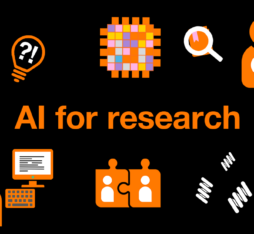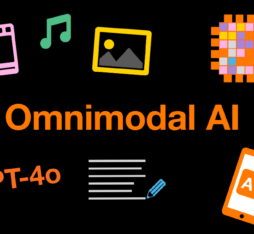• Hot on the heels of a surge in the use of LLMs that began in late 2022, the artificial intelligence market is being buoyed by a second wave of enthusiasm for these new tools. Tech players believe they have the potential to optimise or even automate entire business functions, such as customer services, IT support and human resources.
• However, their integration faces a number of challenges notably with regard to ethics, security and compliance.
The general public has been introduced to generative AI by large language models, which have made headlines in recent years. For its part, the tech market is now increasingly enthusiastic about AI agents, which companies could deploy to reduce the cost of customer services, human resources, and IT assistance. There is as yet no consensus on the exact definition of what constitutes an AI agent, although everyone agrees that they will be programmes that independently execute tasks on demand, which will often involve interaction with several different systems.
Definitions of the role of AI agents
For Google, AI agents are task-based assistants, whereas Asana presents them as artificial extra employees that are ready to take charge assigned tasks.
“AI agents are programmes that can independently exchange information in order to identify needs and transform them into data or actions, which is not possible with traditional AI automation,” explains Joachim Fléchaire, VP for AI, Tools & Technology at Orange. And they may soon be ubiquitous, once we have effective single AI agents, we can also look forward to the possibility of chains of agents collaborating on complex processes. “They will more finely tuned and less predictive, so they’ll be able to observe and trigger actions independently in real time.”
The goal of AI agents is to reduce human interaction in selected processes. For example, for extremely time-consuming tasks like the evaluation of procurement risks, AI agents could autonomously drive the creation of reports that analyse information provided by suppliers. In the field of human resources, they could be deployed to answer employees’ questions or perform simple tasks on their behalf. However, to take charge of work of this kind, they will need a functional perception of their environment, which enables them to apply reasoning and make and implement decisions. “Chains of AI agents will be able communicate and hand off tasks to each other. However, this means that a hallucination in one agent can spread to subsequent agents, which is why evaluation and control are essential, particularly in the selection and fine-tuning of models.”
The impact of AI agents on jobs will obviously need to be evaluated in terms of user feedback over time, the observability of applications, and effects on productivity.
Technical and ethical challenges arising from AI agents’ massive access to data
In a recent post on LinkedIn, the well-known Silicon Valley entrepreneur and CEO of Box, Aaron Levie, outlined topics under discussion in enterprises developing strategies for AI agents. As companies don’t store data in a single environment, these agents will need to be able to communicate with each other, regardless of where specific systems are deployed. This raises the issue of two further challenges: a lack of consensus on AI compliance in industries such as healthcare and finance and the question of security and privacy. As Levie points out, “lots of enterprises deal with the fact that software has ‘overshared’ information over the years. This is fine when a human can’t possibly find everything across the tools, but a huge liability when agents can get access to nearly anything, instantly, and return it to a user.”
Infrastructure and use cases
Jon Turow of Madrona Ventures advocates the creation a technology stack specifically for the development of agents, which will provide support for their adoption and integration across different environments. This infrastructure should enable agents to function independently, handle contingencies, and interact with existing systems.
“The impact of AI agents on jobs will obviously need to be evaluated in terms of user feedback over time, the observability of applications, and effects on productivity,” explains Joachim Fléchaire. The Orange Innovation VP for AI further notes that many consultancies initially overestimated productivity gains that failed to materialize in practice. However, he sees many possible applications for AI agents in the telecoms group. “For example, Orange could make use of them for network analysis, predictive maintenance, and investment optimisation. Agents are already deployed in customer relations and to assist in support functions with a particular focus on quality rather than quantity.”
Sources :
What exactly is an AI agent? (TechCrunch)












